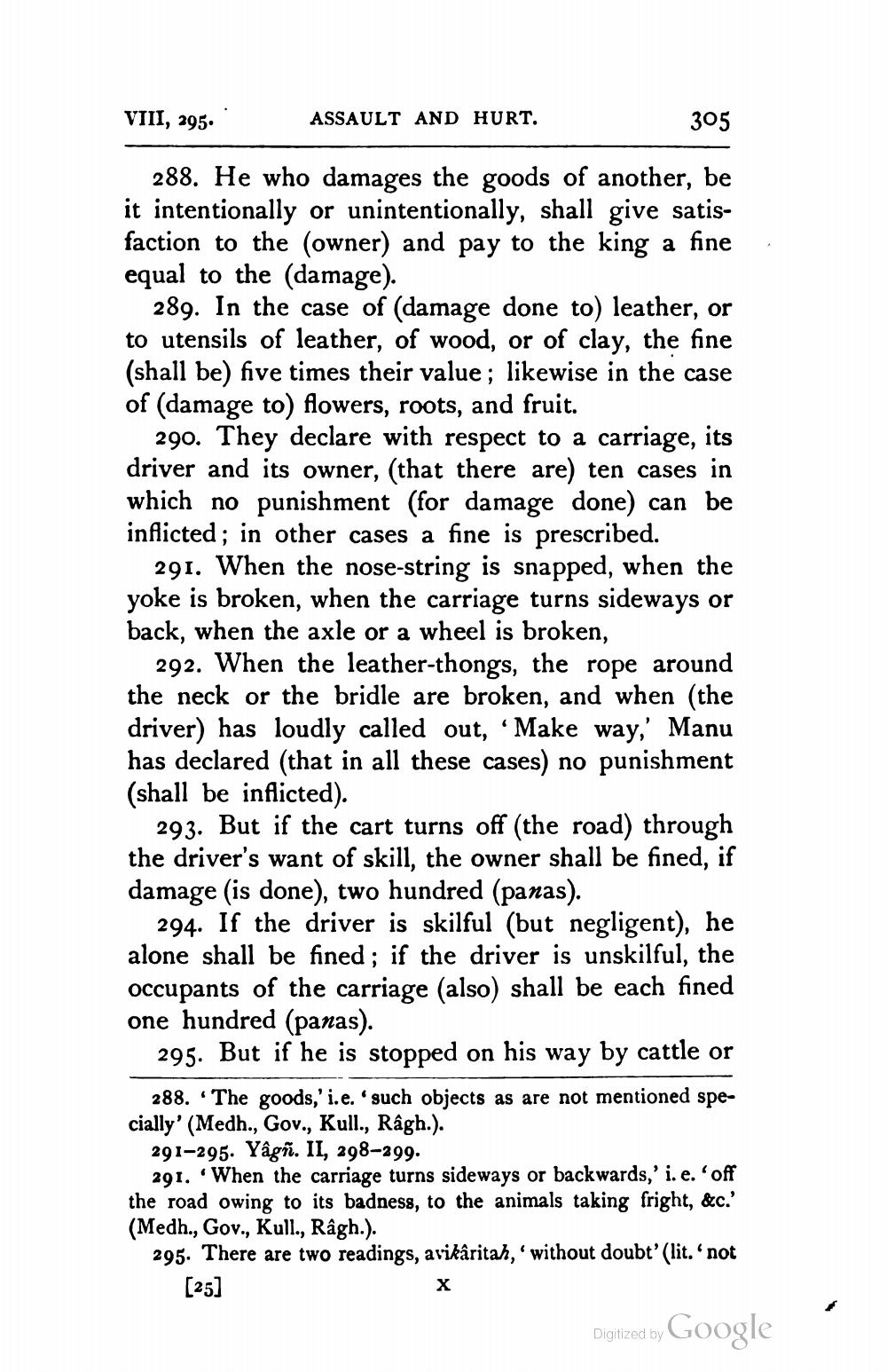________________
VIII, 295.
ASSAULT AND HURT.
305
288. He who damages the goods of another, be it intentionally or unintentionally, shall give satisfaction to the (owner) and pay to the king a fine equal to the (damage).
289. In the case of (damage done to) leather, or to utensils of leather, of wood, or of clay, the fine (shall be) five times their value; likewise in the case of (damage to) flowers, roots, and fruit.
290. They declare with respect to a carriage, its driver and its owner, (that there are) ten cases in which no punishment (for damage done) can be inflicted; in other cases a fine is prescribed.
291. When the nose-string is snapped, when the yoke is broken, when the carriage turns sideways or back, when the axle or a wheel is broken,
292. When the leather-thongs, the rope around the neck or the bridle are broken, and when (the driver) has loudly called out, ‘Make way,' Manu has declared (that in all these cases) no punishment (shall be inflicted).
293. But if the cart turns off (the road) through the driver's want of skill, the owner shall be fined, if damage (is done), two hundred (panas).
294. If the driver is skilful (but negligent), he alone shall be fined ; if the driver is unskilful, the occupants of the carriage (also) shall be each fined one hundred (panas).
295. But if he is stopped on his way by cattle or
288. “The goods,' i.e. such objects as are not mentioned specially' (Medh., Gov., Kull., Râgh.).
291–295. Yâgñ. II, 298–299.
291. When the carriage turns sideways or backwards,' i.e.'off the road owing to its badness, to the animals taking fright, &c.' (Medh., Gov., Kull., Râgh.). 295. There are two readings, avikâritah, without doubt'(lit. not [25]
Digitized by Google




